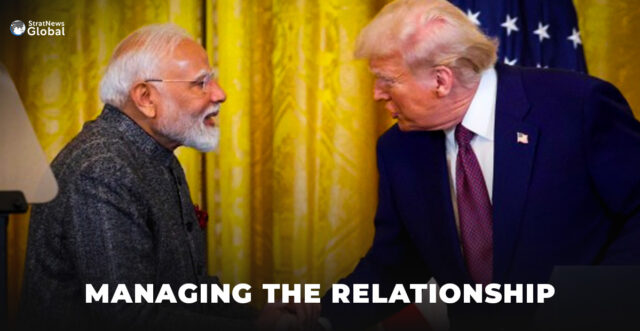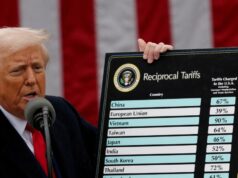“From the reports we are seeing, there are people in the US who are engaging with Congressmen, Senators, trying to convince them of the Pakistan relationship. Some of the investors who are close to the Trump Organization, the Trump family, have links to Pakistan. So these are things one has to keep in mind.”
In a conversation with StratNewsGlobal, Arun Singh, former ambassador to the US, believes that with Trump saying thinks like ‘I like Pakistan, it’s a very good country, very important country, engaging with the army’, these are the kind of things that would make Indian policymakers watch the Pak-US relationship very closely.
In international relations, he pointed out, even if the US establishment and the US president value the India relationship and want more to do with India in terms of trade and technology, “it doesn’t mean they will fully internalize India’s perspective.”
So even as India seeks to consolidate its relationship with the US without giving up on Russia, or for that matter Iran, it must carefully navigate its foreign policy choices. It must also navigate through President Trump’s vainglory: his desire to take credit which in turn drives his hopes for a Nobel Peace Prize!
It explains his intervention in the fighting between India and Pakistan, seeking to take credit for the ceasefire even though he did nothing. But the Pakistanis were happy to play up to him, sensing an opportunity to get close to the Trump White House and maybe even restore the kind of relationship that existed during the Cold War.
The Pakistanis may have sensed something else: Donald Trump is a powerful leader. He commands the support of the Republican Party, commands the support of its base and that’s the fact the world has to deal with.
When Trump praises Pakistan, it’s for a reason and that could be a hiccup for India. A hiccup in the short-term but nevertheless a hiccup. India has seen this before.
In the Obama administration, there was a move in 2016 to supply Pakistan with F-16 fighters, this was because the US needed Islamabad’s help with the Taliban. India had to mobilise its support in Congress to get the F-16 deal stopped.
Mind you, Obama was the president on whose orders Osama bin Laden was killed; it was again Obama who came to India twice, which no US president has ever done. He even backed India for a permanent UN Security Council seat.
Recall his predecessor George Bush, “standing with then Pakistan President Parvez Musharraf,” claiming that “Musharraf is standing tight with us in the fight against terrorism”.
Bush said those things because they were dependent on Pakistan to ensure the supply routes to Afghanistan were kept secure. This was when US troops were heavily involved in fighting the Taliban.
These things about Pakistan will keep coming up in the US based on compulsions of its self-interest. India needs to be watchful.
Are there sufficient stakeholders in the US who are committed to India?
Arun Singh says “there are significant stakeholders in the US committed to the India relationship,” pointing to the India caucuses in the House of Representatives and the Senate. The businesses invested in India are also invested in the India relationship.
“Many of the big US companies , their second largest presence is in India. We can talk about the 1,800 global capability centres doing cutting-edge R&D, tech development work for global multinationals and 60% of these belong to US companies.”
But India must continue to build further on that and that will have to be the strategy. Also, India needs to watch out for the hiccups in the short-term. But Singh also believes “the new thing emerging in the India-US relationship is that we are more able to manage our differences.”
Thirty eight years in journalism, widely travelled, history buff with a preference for Old Monk Rum. Current interest/focus spans China, Technology and Trade. Recent reads: Steven Colls Directorate S and Alexander Frater's Chasing the Monsoon. Netflix/Prime video junkie. Loves animal videos on Facebook. Reluctant tweeter.





